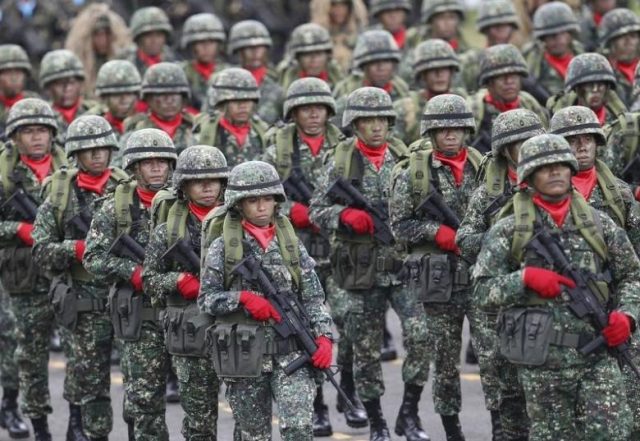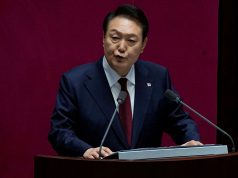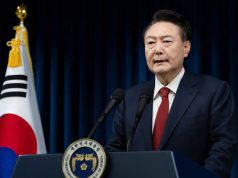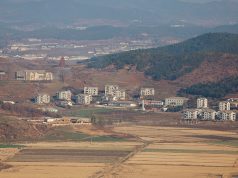MANILA, Philippines — The Armed Forces of the Philippines has recommended the extension of martial law in Mindanao, saying it is needed to decisively resolve the various armed threats in the south.
Brigadier General Restituto Padilla said the recommendation had been submitted to Defense Secretary Delfin Lorenzana who, “after duly studying it has forwarded the recommendation to Malacañang,” although he admitted “I don’t have the details as to the length” of time the military wants martial rule prolonged.
Nevertheless, “there is a recommendation to similarly support the recommendation of the Philippine National Police,” Padilla said, referring to the police recommendation for a yearlong extension, which ha been endorsed by acting Interior Secretary Catalino Cuy.
President Rodrigo Duerte declared Mindanao under martial law on May 23, shortly after fighting broke out between government forces and extremist gunmen in Marawi City.
When the 60-day period the Constitution sets for the initial declaration lapsed, Duterte sought and was granted an extension by Congress until the end of the year.
After Marawi had been retaken, Duterte said he would leave it to security forces to determine if martial law needs to be extended further.
Explaining why the military still needed what he called “the cover of martial law”, Padilla pointed to the threats posed by extremists on one hand — remnants of the Marawi gunmen, banded under the Khilafa Islamiyah Mindanao who “still remain to be a threat” even if “significantly degraded,” the Bangsamoro Islamic Freedom Fighters in Maguindanao, Lanado del Sur and the Cotabato provinces, and the Abu Sayyaf in Basilan, Sulu and Tawi-Tawi — and communist rebels
He said extremists who survived the five-month battle for Marawi “remain at large and are attempting to recover by recruiting” new members from “vulnerable” sectors — students, children, women and relatives of those who died in the fighting, mainly through “enticements” like money.
Padilla, however, said the threat from the Abu Sayyaf had been significantly reduced that there have been no recent kidnappings of foreign sailors from vessels passing through the country’s southern waters. He attributed this to the continued military operations in the southern island provinces and the air and maritime patrols carried out by Philippine, Indonesian and Malaysian forces.
The AFP spokesman said the government also had to prepare to face increasing violence from the New People’s Army following the termination by Duterte of formal peace talks with the communists.
He also accused the communists of insincerity in seeking peace, noting a “tremendous increase” of 65 percent in rebel attacks from January to November 30 in Eastern and Western Mindanao.
Of the 617 NPA operations recorded over the year, Padilla said, 382 happened in Eastern Mindanao, where Duterte’s hometown Davao City is located.
He said that economic losses from arson alone accounting for P2.4 billion this year, a “2000 percent increase” from an estimated P100 million in 2016.










